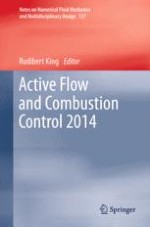2015 | OriginalPaper | Chapter
Low Temperature Gasoline Combustion – Potential, Challenges, Process Modeling and Control
Authors : Bastian Lehrheuer, Bastian Morcinkowski, Stefan Pischinger, Martin Nijs
Published in: Active Flow and Combustion Control 2014
Publisher: Springer International Publishing
Activate our intelligent search to find suitable subject content or patents.
Select sections of text to find matching patents with Artificial Intelligence. powered by
Select sections of text to find additional relevant content using AI-assisted search. powered by
Worldwide efforts in combustion development focus on reducing carbon dioxide emissions. Besides improving conventional combustion systems, also alternative systems have to be considered as a measure to achieve that goal. The present work aims to increase the usability of gasoline controlled auto-ignition (GCAI) with its potential benefit regarding fuel consumption of up to 30 %.
The operating range of low temperature gasoline combustion is limited by instability and high sensibility regarding the thermodynamic state. In a first step, experimental investigations on a 1-cylinder research engine with Electromechanical Valve Train (EMVT) were carried out to identify measures that extend the GCAI operating range. In particular the injection strategy appears to be an important control value. So, a distinct amount of fuel injected during the intermediate compression by using combustion chamber exhaust gas recirculation helps to decrease the feasible load by up to 62.5 % (at 2000 min
− 1
). Increased charge dilution realized by charging or external exhaust gas recirculation influences the maximum cylinder pressure gradient and allows raising the examined load point from IMEP = 4.6 bar to IMEP = 6.7 bar.
The experiments reveal that the auto-ignition process is affected by comparable high combustion variability with negative influence on stability and controllability. Hence, numerical investigations were carried out to gain a deeper understanding of the combustion fluctuations. Using an 1D gas exchange model in combination with computational fluid dynamics (CFD) the origin of those fluctuations can be determined. On the one hand auto-correlations between consecutive combustion cycles are exposed. This demonstrates the high sensibility of the GCAI process for the thermodynamic state. Furthermore, a superimposed stochastic fluctuation caused by a distinct intake pressure noise explains the combustion variations.
The precise process model is used to develop a model-based predictive controller. To that end the complexity of the model is reduced based on 1D gas exchange calculations and the Watson approach. The reduced process model is capable to reproduce the above mentioned fluctuations.
